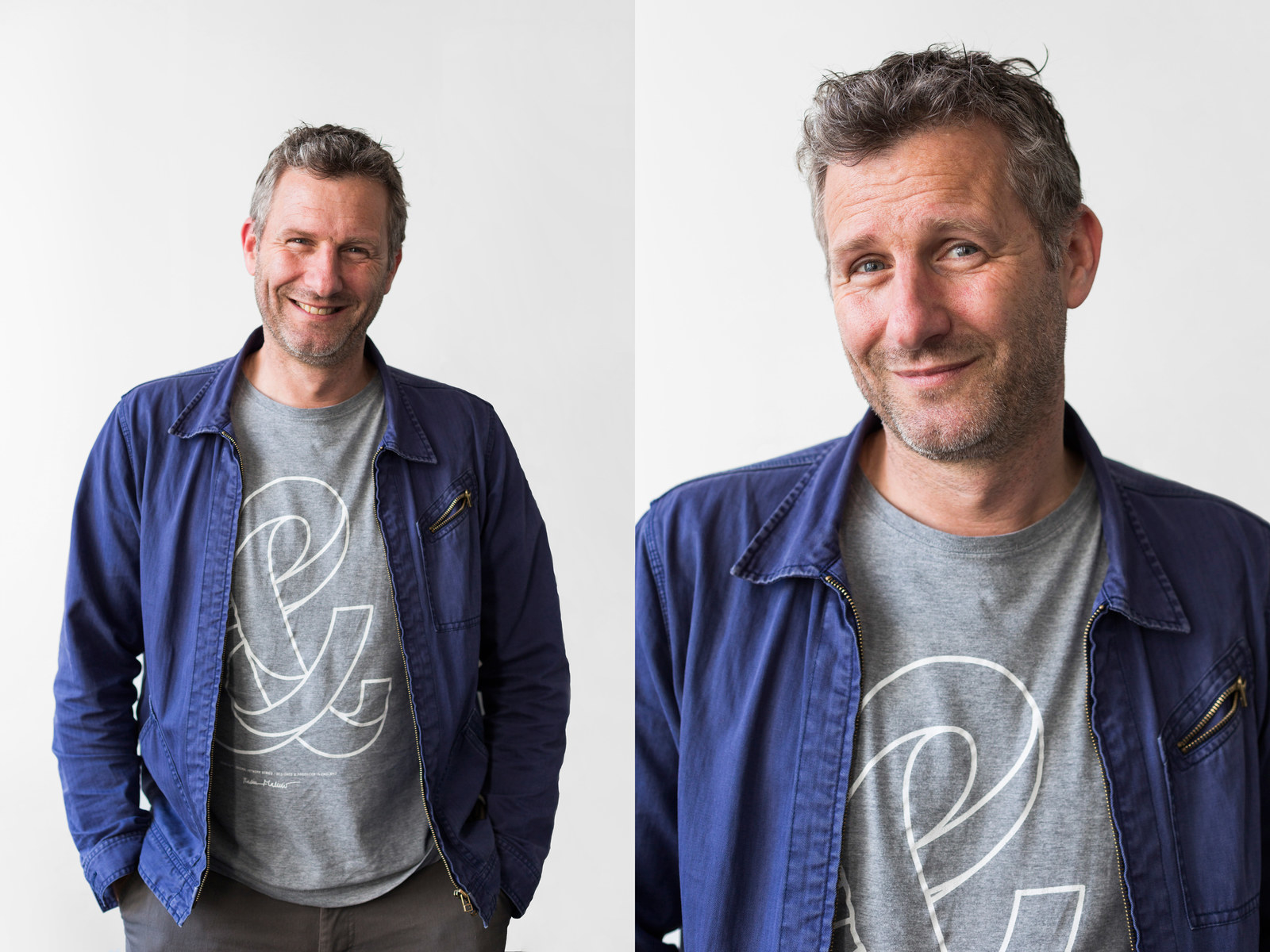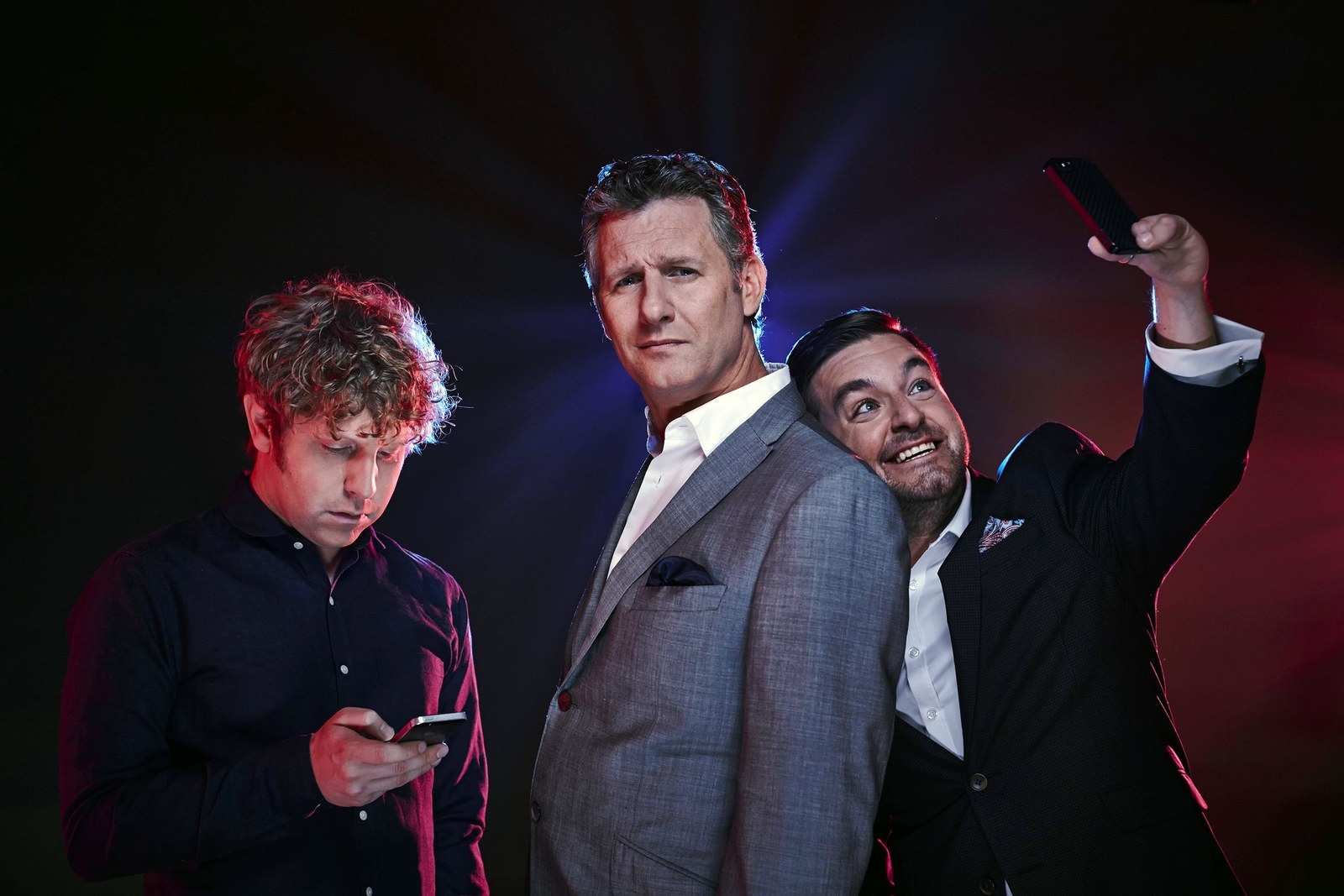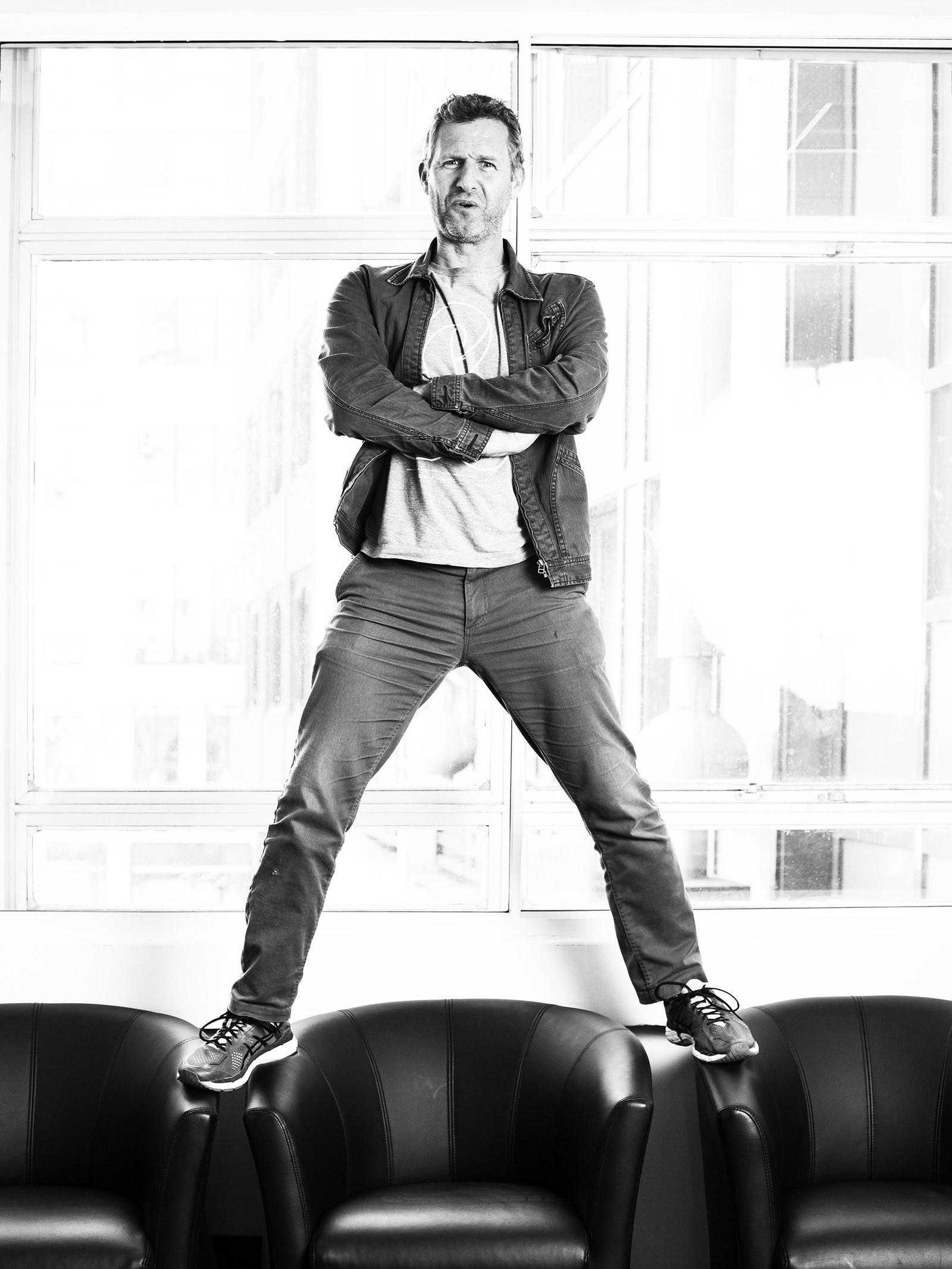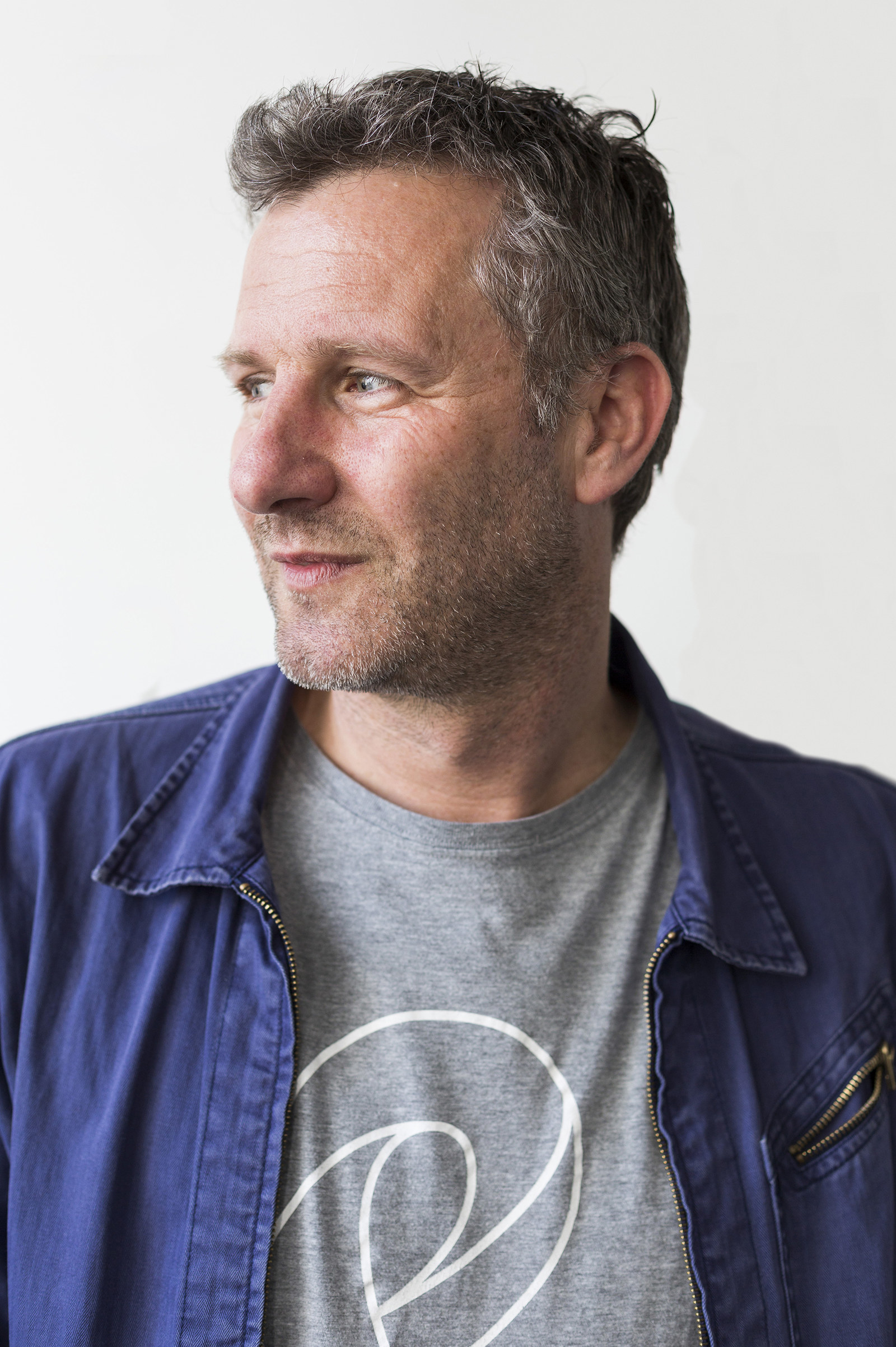The 11th series of The Last Leg, which ends this month, was brought forward by several weeks due to Theresa May’s ill-fated decision to call a snap general election. BuzzFeed News had arranged to interview the show’s lead presenter, Adam Hills, as part of a week-long series of articles around disability rights. But just as the prime minister messed with the Last Leg team’s holiday plans, our disability series was pushed back until now. “Bloody Theresa May,” Hills said from the show’s production company offices in central London the day after the election was announced. “She’s done enough for disabled people as it is, now she’s just trampled over disability week.”
Australian-born Hills describes The Last Leg as “three blokes with four legs talking about what’s going on during the week”, and over the last five years the show, broadcast live in front of a studio audience, has become a firm fixture on Friday nights, pulling in around 2 million viewers a week, winning praise for its handling of difficult issues, and confronting issues of disability. Not bad going for a show that began life as a late-night, 10-episode experiment during the 2012 London Paralympics.
Clips from the show also frequently go viral, whether it’s the former leader of the Labour party Ed Miliband singing A-ha or co-presenter Alex Brooker emotionally speaking about his Paralympic hero, Alex Zanardi.
Introducing @Ed_Miliband and The Ed Mili-Band... #Milibanter #TheLastLeg
Impassioned direct-to-camera monologues, relatively rare on UK TV screens, have been one of the central themes of The Last Leg, and have seen comparisons made between Hills, who spends much of the show behind a desk, and US satirists such as Jon Stewart, John Oliver, and Stephen Colbert.
View this video on YouTube
The most viewed video on the show's YouTube page, with almost 2 million views, is Hills' straight-to-camera piece on the Westboro Baptist Church.
“I think we’ve become that, I think we’re like The Daily Show but for pub culture,” Hills says. “We’re three blokes sitting on a couch chatting shit at the end of the week. I don’t think Britain needs a Daily Show, I don’t think it needs a guy behind a desk in a suit and tie telling you what to think. But I think the idea of watching three blokes on a couch try to make sense of it all is a bit more of the British sensibility.”
Hills presents alongside Brooker and comedian Josh Widdicombe, and despite fronting what is essentially a satirical look at the week’s events, he says neither he nor his co-presenters are obsessed with the news.
“When Channel 4 first came to us after the Paralympics and said ‘Would you do a weekly news show?’, none us were that interested by the news that we wanted to do it. But I think in a weird way the show kind of works because we’re just normal people trying to make sense of the news, and we’re not journalists, and we don’t know what’s going on everywhere in the world. We’re not all that fascinated by the news.”

"I'm like a disabled Spider-Man; I was bitten by a radioactive prosthesis."
The show has clearly evolved over the years, and a lot of that is down to the frequently horrific nature of the news it covers. “We’re dealing with the Westminster attack, and we’ve also covered Tunisia, we covered Ebola, Aleppo, all that stuff we had to cover,” Hills says, “so we’ve had to step up to the plate and kind of grow up, as opposed to just this fun little Friday night show.”
Hills and Brooker are both disabled, although Hills, who was born without a right foot, says neither of them would necessarily think of themselves in that way. (Widdicombe, the owner of those other two legs in the presenting roster, is not disabled.) “I realise now that I am [disabled],” Hills says, “but also, I mean there’s no reason that one guy with one leg and another guy with hand issues and one leg should have been stopped from doing this, because it’s not a physical thing.”
The 47-year-old is perhaps best known in his native Australia for hosting the music-themed comedy show Spicks and Specks, but in seven years of presenting he did not mention his artificial foot once.
He has been doing stand-up since 1989, but he only started joking about his prosthesis after more than a decade of performing live comedy, including a routine about not considering himself disabled, but even then it wasn’t a regular part of the act. Hills says he never thought his disability would actually be a bonus in comedy, a unique selling point.
And despite being arguably the best-known disabled presenter on British TV, Hills seems surprised to be asked about whether he ever considers the success of The Last Leg in the context of his disability, despite there being few disabled people in high-profile roles elsewhere on TV.

“The word disabled never pops into my head when I think about it,” he says. “I think about how ridiculous it is that a guy who grew up in the outer suburbs of Sydney somehow got together with a sports journalist who was found as part of a talent contest, and a guy from Devon, and somehow we’ve created this thing, and out of this dinky little office. But the disability part of it never enters my mind for a number of reasons.
“I guess it’s a bit like Paralympians – a lot of Paralympians don’t see themselves as being disabled, they just kind of go ‘I just run really fast, that’s what I do.’
“It’s a weird one when I think about what we’ve achieved. At no point do I think, Oh, we’ve done well for some disabled blokes, and I’m not being patronising. It’s funny that you brought that question up, because that never enters my thinking.”
He accepts, however, that his position means he has become a role model of sorts: “With great power comes great responsibility. I’m like a disabled Spider-Man; I was bitten by a radioactive prosthesis.”
Hills and Brooker joking about their disabilities has been a huge part of the show’s identity and success.
“Since the Paralympics, and since The Last Leg, I’ve kind of realised there is a responsibility that goes along with this, and that I can do good by talking about disabilities, but also just by getting on with my life and doing whatever it is that I’m doing,” Hills says.
“People with disabilities like it when we talk about disability occasionally; anyone with a disability often feels awkward about it all, or weird about it, unsure about it, and then when you see people on telly laughing about their own disabilities, being OK with it and then moving on with their lives, it kind of makes you realise: There are other people out there who are OK with theirs, and maybe it will help me be OK with mine.”
"You know who hates benefit scroungers more than anyone else? Genuinely disabled people."
While the Paralympics is clearly central to the story of The Last Leg, this also applies vice versa.
“On the way to Rio, Sir Philip Craven, who’s the head of the International Paralympic Committee, just basically said to us, ‘Look, you’ve done it, you’ve changed the perception of the Paralympics. You’ve done so much for the Paralympic movement,’” Hills says.
He talks effusively about the Paralympics and its impact upon disability awareness. “Once every four years the Paralympics take over a city, and there’s a little explosion of disability awareness that happens around that city, and then four years later it moves to another one. And I know that from experience, because Sydney happened in 2000, and it meant that the way disability was viewed in Australia suddenly altered. It then happened in Beijing in 2008, so I knew it was going to happen here as well.”
Much like an athlete in training, he says he has his heart set on covering the 2020 Paralympics. “Definitely, absolutely, definitely. More than anything else, if we stopped doing The Last Leg I would still go to Channel 4 and say ‘let us go to Tokyo’, and it’s not about being in Tokyo, it’s just, ‘let us cover more Paralympics.’
“Because that I think that’s what I enjoy the most – that’s when we’re at our best. I can rant and rant about disability cuts and disability in general all I like, but I’m not going to achieve as much as just going, ‘How awesome is Jonnie Peacock?’ We never set out to change perceptions about disabilities, but we did set out to highlight the Paralympics.”
The Last Leg has coincided with the latter stages of the coalition government, and, until the election, the Tory-majority government. The show has repeatedly used its unique position to criticise the governments’ cuts to disability benefits. Hills says the effect the cuts have had upon disabled people cannot be overstated.

“Someone tweeted me today about their dad having his car basically taken away because he could sit down and feed himself; he could chop up food and he could cook himself dinner. But he can’t get himself to the shops to buy the food in the first place. So as a disabled person it makes you feel like you’re a scrounger,” he says, adding: “You know who hates benefit scroungers more than anyone else? Genuinely disabled people.”
@adamhillscomedy Hi Adam just wanted to thank you and @TheLastLeg for talking about the diability cuts know we are not alone #loveyou #legup
@adamhillscomedy @TheLastLeg 12 years ago my dad broke his leg in 6 places/shattered his ankle with 90% burns to hi… https://t.co/PksosCdm9T
@adamhillscomedy @TheLastLeg We appealed but was told that because he could sit down to chop food, even though he c… https://t.co/Ob45keGd0D
“After a while it makes you start to question it: ‘Well, maybe I should be doing things, maybe I don’t need a car,’” he says. “One of our researchers here, Rosie, has cerebral palsy, and she had to fill out a form listing all the things that she can’t do. Now, firstly it took her eight hours because she’s got cerebral palsy – that’s eight hours of her day filling out a form. Secondly she is one of the most positive people I know, and she spends her life focusing on the things that she can do, and then suddenly someone is forcing you to spend eight hours focusing on the things that you can’t do, to prove that you can’t do those things. That’s a lot of faff to go through and a lot of mental torment to go through to prove that life has dealt you a bit of a shit hand. So you can see how that just spirals into feeling bad about yourself.
“On top of the financial side of it, which doesn’t seem to be really saving that much money, what it’s doing to disabled people and people generally on benefits is making them feel bad about themselves. And that’s the worst thing – it’s hard enough having a disability, regardless of what it is. There’s always that little thing in the back of your mind that will go: Why me? This is shit. You can be having a fine day but then your prosthetic will break, or you’ll get a blister, and it’s a little reminder that there’s absolutely no reason why this should happen to me. And so it can get you down, and then to feel like you’ve been victimised because of that...it’s just so hard to explain how much damage that does.”
"I wouldn’t say it's cool, but it's almost, like, on trend. We’ve become the cool kids."
It will be no surprise to anyone who has watched The Last Leg that Hills pulls few punches.
“Imagine if I said to Theresa May, ‘Right, I know you think you’re a female prime minister, but I’d like you to prove it. Prove you’re a woman, take your top off. Let me see your boobs. Right, underwear off.’ That’s how degrading it is for a disabled person, you actually have to prove this thing that you are, that you’ve had no say over.
“There’s that thing with disability, you always think it’s someone else and not me, until you lose a leg in a car accident, or you have a disabled child. It is in some cases cruel what’s happening to disabled people. It’s the word ‘benefits’, isn’t it? The word ‘benefits’ make you think of a handout or a scrounging or a begging. If you said to the person on the street ‘Do you think disabled people deserve more benefits?’ they’d probably say no. If you say ‘Do you think the government should help disabled people?’, they’d say yes. So I don’t know what the answer is except keep fighting the good fight.”
While many occasional viewers will associate The Last Leg with the Paralympics or disability rights, it is the fact the show covers so many other issues that resonates the most, Hills says.
“From what I gather from talking to people, and talking to disabled people, one of the things they like about our show is that it’s not a show about disability. It’s two guys with disabilities doing other stuff, and apparently disabled people take a lot from that. Even if we had an episode where we don’t talk about disability at all, a series where we don’t talk about disability at all, in many ways that actually means more to disabled people. They watch us and then kind of go, ‘It doesn’t have to be a disability – a disability doesn’t have to define you.’ So I guess when we grow up and talk about things like the Westminster attack, or Charlie Hebdo, or Jo Cox, or Brexit, or Trump, when the focus goes away from our disabilities that’s apparently when we help people’s perceptions.”
Surprisingly, Hills believes that this shift in perceptions may have had a negative impact.
“After the Paralympics I think what happens is people don’t see disability any more, they just see amazing athletes who can do incredible things, and then when you have the benefits debate there’s this little thing in the back of people’s heads going, Yeah but you can do anything, right? We’ve just watched this amazing event – why do you need benefits?
“It’s easier to paint people with disabilities as scroungers on benefits if you’ve just seen someone run the 100 metres with no legs in 11 seconds. So there is that weird other flip-side of it. But I think the Paralympics does a lot to change the perception of disabilities; it almost keeps stoking the fire every four years.”
The other huge shift in perception Hills has witnessed, which he says surprises him more than anything else, is the “little bit of edge” disability has about it now.
“I wouldn’t say it’s cool, but it’s almost, like, on trend. We were just talking about it, someone said ‘You know how mental health is becoming the new black, in a really good way, people talking about mental health,’ and Alex went ‘Yeah, when is that going to happen to disability?’ And I said, ‘We’ve had our day, are you kidding? We’ve become the cool kids.’
“Do you know what it is? I never saw it as a hindrance, or a hurdle, or that we would achieve success despite our disability. But what surprises me is that we’ve achieved success because of it. Not that it didn’t hold us back, but it was the one thing that actually made us stand out.
“It’s that saying,” he adds, tapping his artificial foot, “what makes you different makes you unique.”



